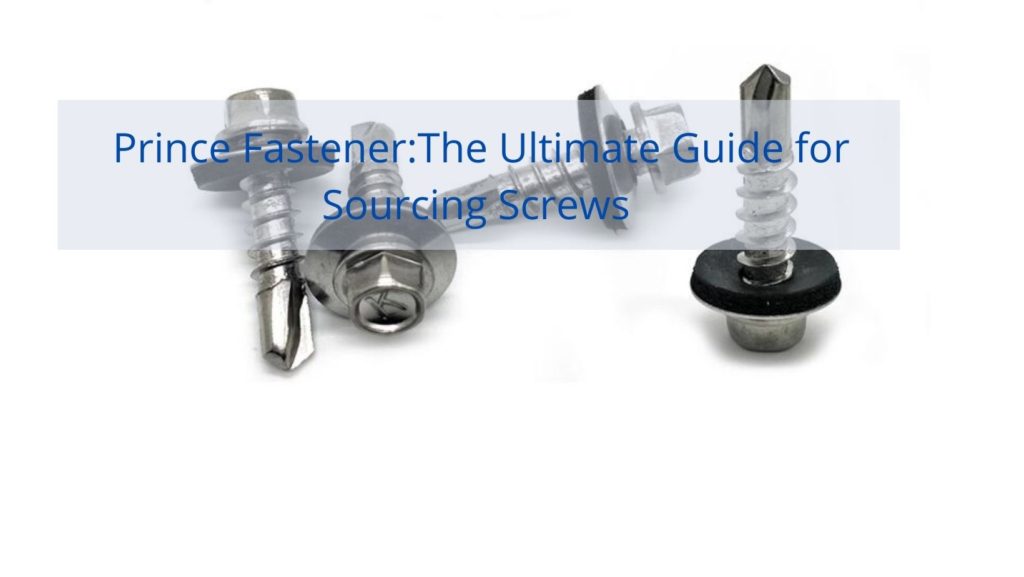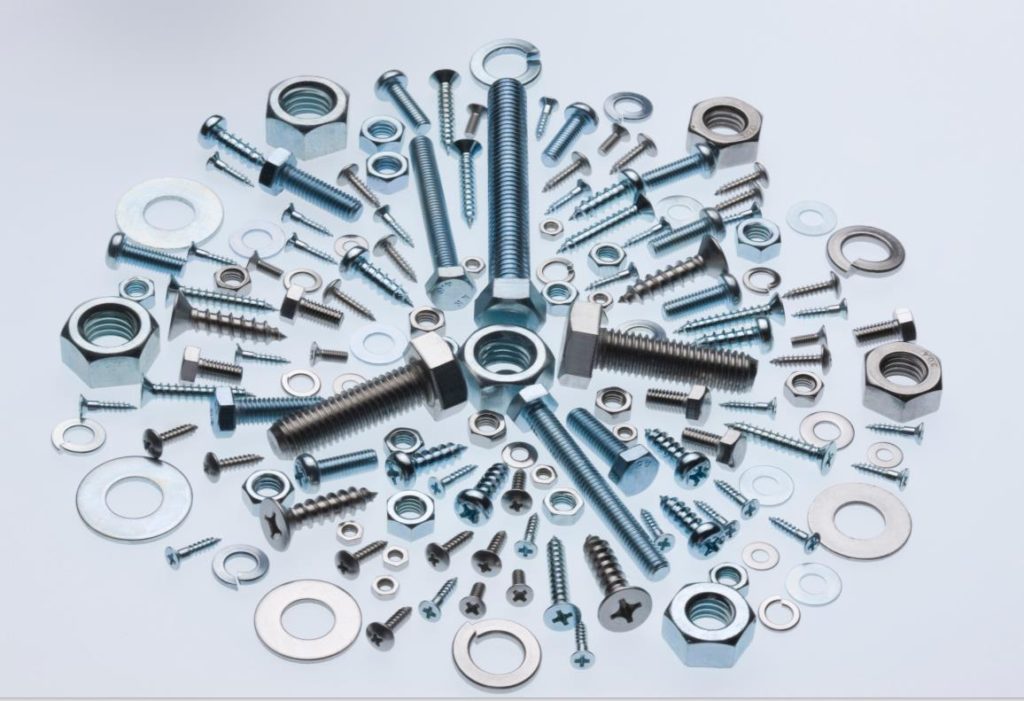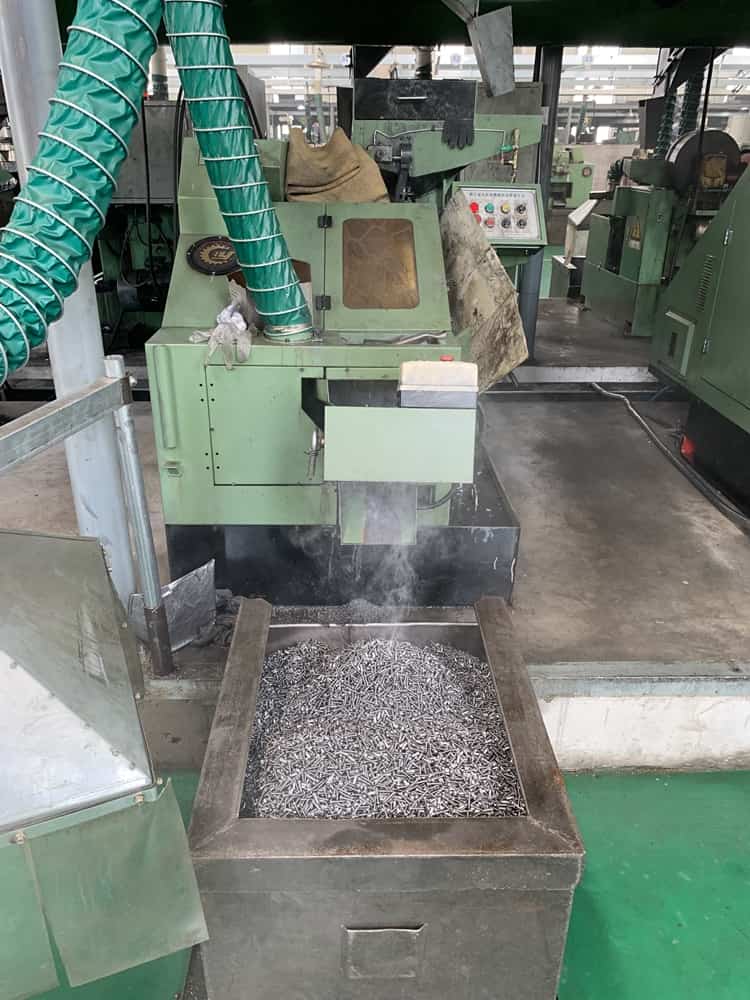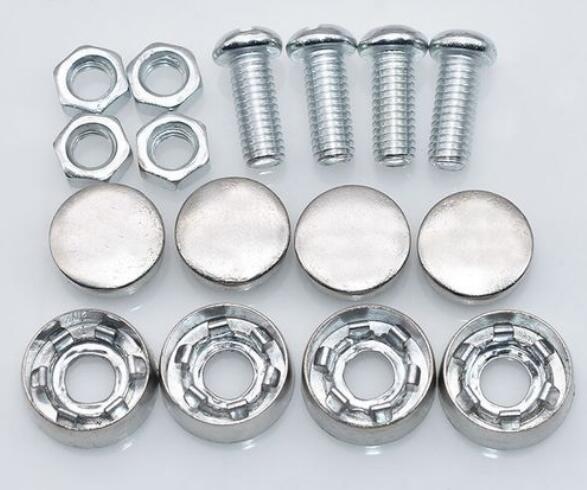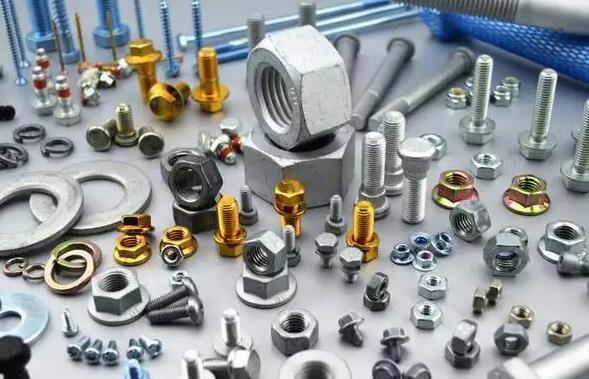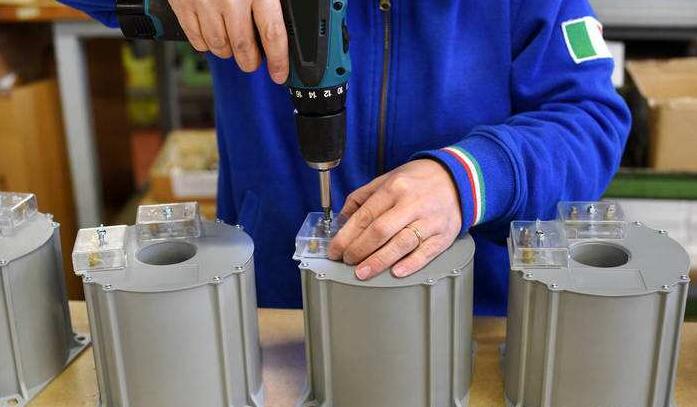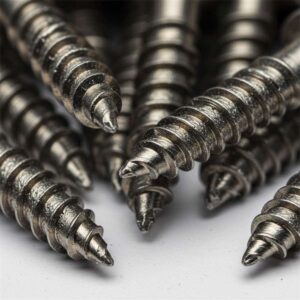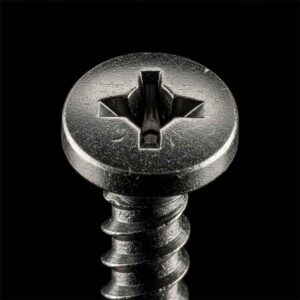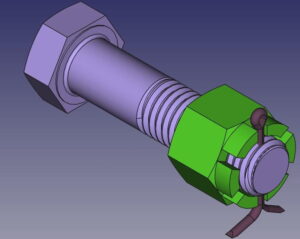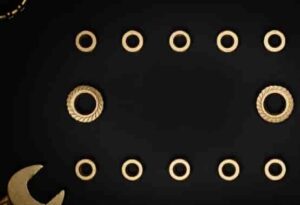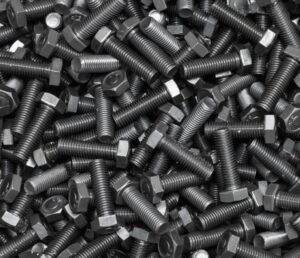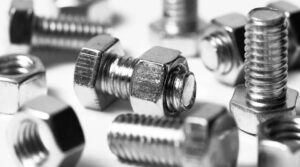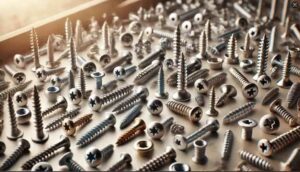Prince Fastener:The Ultimate Guide for Sourcing Screws
Screw Sourcing Guide.
Screws are used in a wide range of applications in construction and other industries – they provide security, tightness, ease of adjustment, and removal, and they are a suitable choice for many jobs. These fasteners come in many types, materials, and sizes your project Choosing the right screw for your project requires some consideration.
Below, we’ll take you through all the different types of screws and provide tips on choosing the correct screw size and length.
Types of screws
To handle construction work effectively and safely, you need the right tools and the right fasteners from a fastener supplier. Screws are excellent tools for joining materials, but there are many types, each suitable for a particular job. You can divide screws into two categories – standard screws and non-standard screws.
High-strength self-tapping screws
Standard screw types.
When choosing screws, you can start with the general category of fasteners. These screws are suitable for a variety of projects, including.
Wood screws. Wood screws have sharp points and secure two pieces of non-structural wood. These screws have thick threads and an unthreaded handle next to the head. This unthreaded portion allows the wood screw to hold two pieces of wood tightly together.
Drywall screws: These screws are used for interior work, such as securing drywall to studs. Drywall screws with a coarse thread are used to secure drywall to wood studs, while drywall with a fine thread is used to secure drywall to metal studs.
Cement Board Screws: This all-thread screw type is designed to secure tiled subfloors or fasten backer boards to wall studs. They feature a corrosion-resistant coating that may be caused by water or stucco. Cement board screws can be used with metal, wood, or both.
Deck screws: These screws are used for fencing, decking, and other outdoor work. When choosing deck screws, keep in mind that there are two common types. Wood deck screws have a coarse threaded portion and an unthreaded handle, and composite deck screws feature a small head and fine threads. Some composite deck screws have extra thread sets to prevent composite material from building up in the head of the screw.
Structural wood screws: Structural wood screws have the same basic design as regular wood screws, with unthreaded shafts and coarse threads. However, these screws are much stronger. You can also use lag bolts or screws if local building codes allow.
Lag bolts or lag screws: Lag screws or bolts are used to fasten heavy parts or handle heavy loads of material. They have a hex head, which means you need a socket, a ratchet, or a wrench to install them. Loop screws are also common. These are wood screws used to hold chains or ropes in place.
Machine Screws: These threaded screws hold metal parts in place. Several machine screws, including hexagonal screws, feature a cylindrical shape, a raised hexagonal head, and hexagonal screws without ahead.
Concrete screws: Concrete screws are used to secure masonry structures, such as concrete. There are self-tapping concrete screws that allow direct access to the material without advanced drilling. Some types can be used with masonry anchors.
Sheet Metal Screws: These threaded screws are used to secure two sheets of metal or sheet metal to soft materials. This screw type can usually be used with pre-drilled holes. There are also sheet metal screws with self-drilling points.
Multi-material screws. Multi-material screws include sheet metal, wood, masonry, drywall, plastic, and other materials.
Application of screws
Specialized non-standard screws
In addition to the common types of screws mentioned above, there are several different types of screws, most of which have specific applications. These include.
Ceiling fan screws: Used to secure the light bulb or blade of a ceiling fan.
Cabinet mounting screws. These screws are specifically designed for securing cabinets to wall studs.
Gutter Screws. This screw type holds the parts of the gutter together and secures the gutter to the sides of the house.
Dowel screws. This headless screw has threads and points on both ends. Designed for attaching wood pieces with no visible fasteners.
Landscape Screws. These long screws are used to attach landscape timbers.
Wall plate screws. This machine screw secures the cover of sockets, light switches, and other similar parts to the electrical box.
Trim Screws. Trim screws feature a small countersunk head that makes them easy to conceal.
Security screws. Security screws are designed to be difficult to remove. This requires a special drill bit.
Screw finishes and materials.
Material and finish are two important screws that usually determine what work the fastener is suitable for. While some materials allow screws to handle rigorous work, other materials help prevent corrosion or rust. If the screw material is prone to rust, some finishes can protect it from corrosion.
The more popular screw material is steel, but steel corrodes when it comes in contact with water. For this reason, steel screws are plated or coated for corrosion. Popular finishes and coatings include black phosphate and zinc plating.
There are a variety of other finishes, including polymers, electroplated lacquers, powder coatings, and ceramics that help prevent corrosion of steel screws. Decorative finishes such as chrome, nickel plating, and brass provide corrosion protection but are not recommended for outdoor applications. Stainless steel screws factory do not have corrosion resistance and are designed for indoor applications only. There, water is not an issue.
Other common screw materials include.
Brass
Stainless steel
Aluminum
Please note that some finishes and materials are incompatible with certain tasks and requirements. Fasteners are often manufactured for very specific applications and cannot be used with other applications. Please remember to read the manufacturer’s instructions and follow the code specifications.
Type of screw drive.
Industry Screws
Screws are characterized by the many types used and most common.
Phillips and slotted wrenches. Phillips and slotted are two common types of drives, but screw heads tend to protrude easily with these drives. There are also combination tools, which can be used with both types of tools.
Hexagonal drive. Hexagonal drive screws have a six-sided socket, but they also protrude.
Square and star drivers. Square and star drivers, called Robertson drivers and Torx, respectively, reduce the risk of protrusion. These drivers are excellent at gripping drives and can be driven one-handed in many applications.
Hex Head. Hex head screws are driven in with a socket, ratchet, or wrench.
Thread type.
There is more space between the threads if the screw has a rough thread. These fasteners are usually suitable for soft materials, such as drywall or wood, although sheet metal screws also feature coarse threads. You can quickly install and remove coarse-threaded screws.
If the screw has a fine thread, it can be used with a nut or pre-punched holes. The smaller gap between each thread gives the screw a better hold, but installation and removal take more time.
Screw head types.
Screw heads also come in different types and use. Some heads fit into shallow recesses called countersunk holes. Other heads, such as worm-head and flathead screws, are designed to sit flush with the surface of the workpiece. There are also self-sinking screws that can cut countersunk holes at startup.
In addition to the countersunk head screw varieties, there are non-countersunk head screws with a pan or round heads placed on the workpiece surface. There are also small decorative head screws, which means you can hide them more easily than other fasteners. Screws featuring washer head, pan head, and truss head provide a larger contact area under the screw head than other types of fasteners.
Screw Uses by Industry
How to choose the right screws for your project?
Considering the zui common types of fasteners, it’s time to decide how to choose screws for your project. To make the right choice, follow these tips.
Choose a drive type. As you learned above, screws come in different drive styles, including Phillips head, flathead, torque, and square. For example, torque and square head will make it easier for the bit to stay in place and help prevent tripping and slipping.
Choose a size. Select the right weight for the screw and the width of the material to be inserted.
Find the correct length. When selecting a screw length, choose a length based on the depth of the material to be inserted. When measuring the screw, you should measure from below the screw head to the point. Again, you should consider the weight of the screw.
With the right choice of fasteners, you can succeed in your project. You will be able to work efficiently and avoid restarting your project.
What does your solution look like?
Each type of screw is designed for a specific application. When choosing a screw, you need to know what material you will be using for the project or projects you will be doing. Screws are first classified by material. The types of screws that are usually zui include.
Wood screws which are rougher, have a relatively large pitch. Large wood screws also have an unthreaded shank next to the head. Some wood screws also have a thin head-to-tail taper. Woodworking and other woodworking projects can benefit from them. Wood screws are not hard-shelled and are therefore softer than hard-shelled screws.
Drywall screws have a distinct curve where the joint shaft meets the end, called the rounded corner. This curve keeps the drywall from being torn by the insertion of the screw. Use gypsum board for fine-threaded screws. The coarse threaded version is used to secure the drywall to the wood shaft, while the fine threaded version connects the drywall to the metal shaft. Depending on the nature of the construction work, the appropriate dry screw is used.
Sheet metal screws usually have all threads from the head to the top, meaning that the threads are not broken. Some tops have self-drilling screw or self-tapping screw manufacturers, which is very useful if you don’t have holes. These fasteners are used in the construction, roofing, and HVAC industries. Sheet metal screws are surface hardened to increase their strength.
Keep in mind that different screw types are available in both general and specialized classifications. You may need to use different ways to accomplish the task in the workplace.
How to choose the correct screw size?
Once you have narrowed down the correct screw type, you will need to decide on the right size. Screw sizes include the length and width of the fastener.
When looking at screw sizes, you may see the term “gauge,” which indicates the width or diameter of the screw. Screw sizes generally range from 2-16, and size 8 is a good general size. If you’re working with very heavy materials, you’ll want to use a size 12 or 14 screws, while for precision equipment like woodworking, you won’t need a size 6 or larger.
To learn how to choose a screw size, remember which drive you’re going to use, and then follow the steps below.
Determine the screw size.
The size chosen depends on the width of the material to be screwed in and the weight the screw will carry. Thicker screws can support more weight, but they also need to be supported with more material.
Screw length selection. In theory, you should choose fasteners that are approximately half the length of the required feed. If the screws are less than half the length of the accepted material, they will not hold properly. If you use screws that are longer than half the length, you risk damaging the other side of the material.
What should consider to choose fastener manufacturer?
For screw purchasers, it is very important to choose a suitable fastener manufacturer. If it is only some common standard parts, it is easy to find in the market. Some screws have other requirements. At this time, you need to find a suitable screw manufacturer to customize. The following are a few small methods organized by Prince Fastener. How do you choose a good fastener manufacturer? Let’s share with you:
1. The equipment is complete; whether it is a standard part of a non-standard screw, this point must be considered. At present, the cost of the screw factory is relatively low. Many masters will come out to open the factory after understanding some skills, buy a few single-mode machines, and rub them. The dental machine can produce screw fasteners, but some non-standard screw fasteners cannot be produced by single-mode machines alone. To customize non-standard screws, we need to know whether customers have multi-station equipment or suitable Die machine equipment, including some lathe equipment, etc., that are the standard for measuring a fastener manufacturer.
2. Extensive experience refers to the knowledge of the manufacturer’s engineers. As a small general-purpose accessory, screw fasteners also require the master’s adjustment level. The reason why a screw can be qualified and played beautifully is mainly for adjustment. Machine level: The more non-standard screws, the more difficult it is to debug the machine, so to see the story of a fastener manufacturer, you can see the adjuster’s experience.
3. With equipment and experience, we also need to look at the production capacity of fastener manufacturers. Although some fastener manufacturers can produce non-standard special-shaped screws, the production cycle is very long, and some customers are anxious. Satisfying the needs of customers, in the long run, not only will some orders be lost, but it will also lead to many problems.
